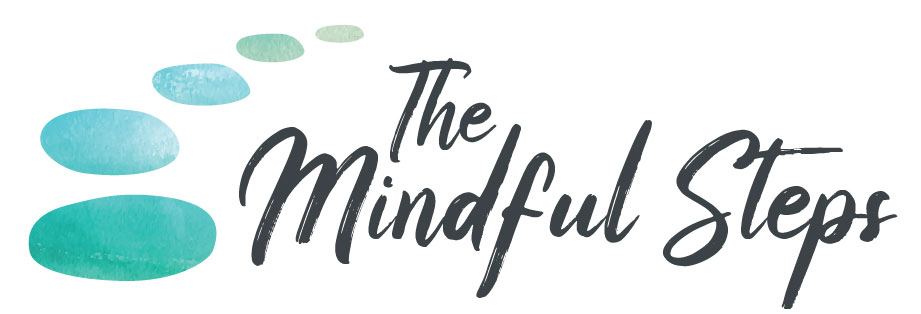Do we expect our children to be exactly as we are?
 How to raise an independent child.
How to raise an independent child.
It was middle of autumn, a beautiful phase when leaves have such vibrant colours. I love looking at the colours of leaves in all their diversity and vibrancy. Just quietly taking them all in gives me a very uplifting feeling. I find it therapeutic. So, one sunny afternoon I went with my daughter to the local park. It was a beautiful peaceful day and I thought it would be great to have some fresh air, enjoy the colours of autumn and spend some time together.
As we were walking through the park, I was drawn to the leaves on the ground. I couldn’t help myself from picking them up and arranging them in my hand. Some leaves had incredible colour combinations, involving two or three different colours. I tried to turn this activity into a game, asking my daughter to find more leaves with 2 or even 3 colours. She wasn’t very enthusiastic about this game. I was admiring my bunch of leaves and then suggested to make a picture with them or some other crafty creation when we got home. My daughter had a think about it and said: “No, thank you, mummy.”
I felt a dreadful feeling of disappointment sinking through my body. I felt that my expectations of enjoying the experience of autumnal walk together, of sharing the passion for colours, were shattering. ‘Why wouldn’t she want to do it?”, the question popped into my mind quickly. Then I paused. I took a mindful pause, trying to distance myself from that feeling and looking at the reasons behind it – something that I teach children in my professional practice. Being aware of our feelings and learning to explore them: why they present themselves, what caused them, how can we process them in a helpful way – are essential skills that make up our emotional intelligence.
When I explored the feeling, I realised that my disappointment was based on an assumption that my daughter liked colours as much as I did. Was that assumption correct? No. Just because she was my daughter, it didn’t mean that she should like everything I do. She was an individual with her own preferences and likes.
Then I remembered an insightful post from Kate Hoyle, a Clinical Hypnotherapist, stating that our children are not supposed to be us. She was relaying that it might have been a difficult truth to admit but truth nevertheless. Would you say that you are the same as your parent? Our children have their own personality with their own genetic code, different to their parents.
When the realisation dawned on me, I accepted that truth. I decided to tell my daughter what I was thinking. I wanted to explain to her WHY I liked the colours so much. I told her that I was a visual person. My dominant sense was the sense of sight. That was why I loved colours everywhere: in nature, in my paintings, in food, the list could go on. Having my dominant sense stimulated with colours gave me a feeling of excitement, happiness.
 I also told my daughter what her dominant sense was. It was hearing. I knew this because when she was a baby, I read a book ‘Child Sense: How to Speak Your Baby’s Language’ by Priscilla Dunstan. This book was one of the few parenting books that my husband also read. It was transformational for us! It has changed our view on the communication with babies, children, and adults too!
I also told my daughter what her dominant sense was. It was hearing. I knew this because when she was a baby, I read a book ‘Child Sense: How to Speak Your Baby’s Language’ by Priscilla Dunstan. This book was one of the few parenting books that my husband also read. It was transformational for us! It has changed our view on the communication with babies, children, and adults too!
In this book the author explains how everyone has a dominant sense, and how it predetermines the way we perceive, experience different events and communicate with others. With the help of this book we identified our dominant senses and adjusted the way we would communicate with our child and with each other, well a little bit 🙂 For example, the book has helped me to know how to help my daughter to feel calmer, how to not escalate a certain situation into a tantrum, how to engage her in a play easier.
When I explained to my daughter why I enjoyed the colours so much, she had a think about it. A couple of minutes later, she started collecting the leaves and passing them on to me. She said: “Look, mummy, this one is beautiful.” Oh my! She was sharing an activity with me that I so wanted to do with her. She decided to do it for me. I could see that she was enjoying it now. She was enjoying it now because she was helping me.
 After we collected a stunning bunch of leaves, we had a chat about what it meant for her being an auditory person. She understood why she loved singing, making entertaining noises (all sorts of noises!) and why she loved music so much! We talked about listening to different sounds and played a game of ‘My top 3 favourite sounds’.
After we collected a stunning bunch of leaves, we had a chat about what it meant for her being an auditory person. She understood why she loved singing, making entertaining noises (all sorts of noises!) and why she loved music so much! We talked about listening to different sounds and played a game of ‘My top 3 favourite sounds’.
We had such a nice time together. We shared an experience and enjoyed it; we had some fun throwing leaves; and my daughter learnt about dominant senses and how they effected us. That day I learnt a big lesson: to see my daughter always as an individual with her own preferences and interests; to not assume something about her, but instead – ask her with an open mind.
It is so easy for us as, parents, to plan something, assuming our child will love it, and then be disappointed if they don’t. Sometimes we say ‘No’ to something they ask, because we think it is not interesting, or it is not ‘good’. It helps to be aware of our own passions and preferences and perhaps be open-minded about others’. At the end, we want them to grow into their own wonderful independent people.

Interesting post, Lena, I remember attempting to play football with my sons a long time ago. Running fast expecting them to enjoy the chase and get the ball. That was the fun part for me but they just gave up. They were happy passing, playing together but not competing.
Thank you for sharing your experience, Paul. It was great to hear. It is fascinating how much we can learn about ourselves too while engaging with our children.
Thank you,Lena.
I felt your support,as if you are hugging in personal.Thank you for sharing such personal moment with us.
It was a pleasure to read.
A very warm email and photo as well.
I am so glad that you found the blog article helpful. Thank you!
It is true that our children and grandchildren have different senses to us, hence the need for us to embrace and celebrate their different perceptions. Being a parent of 5 grown up daughters and a grandmother of 9 I see this everyday and cherish the fact that I have brought up these people with such diverse senses. This beautiful reminiscence of a day with your daughter reminds all of us how we must allow our children the freedom to enjoy their own feelings and senses. A beautiful description.
Thank you for your your wise insights, Ann. You have summarised by blog so beautifully! It is important to celebrate the diversity of senses and all wonderful perceptions and creations that come as the result. Thank you.
I didn’t expect either of our kids to be like my wife or I. However, it scares me at times just how similar my daughter is (in terms of personality). At times, it’s like having a conversation with a younger version of me.
Itís difficult to find experienced people about this topic, however, you seem like you know what youíre talking about! Thanks
That’s very good point
Thanks Lena. What a beautiful memory about empathy, the magical bond between parent and child, and the importance of teaching our children the joy of sharing their feelings and interests with others.
I was just telling my friend about that.